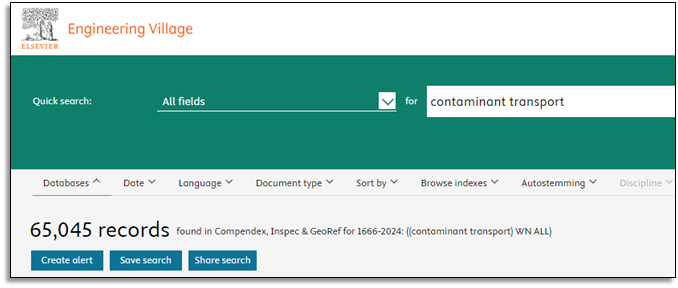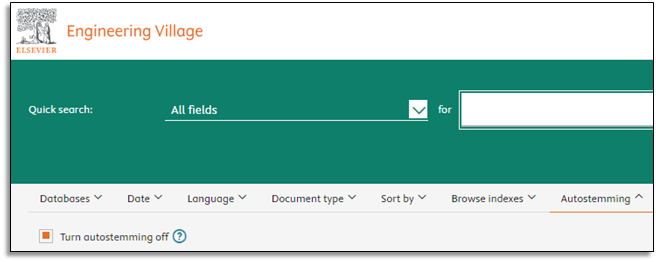Post contributed by Deric Hardy, Librarian for Science and Engineering
Are you a Duke researcher in need of a tool to perform thorough searches of the body of existing scholarly geoscience literature?
If the answer is yes, then look no further than the GeoRef research database, available through the Duke University Libraries.
GeoRef provides broad coverage of geology and geoscience literature and is a valuable search and discovery tool for Duke science and engineering students, researchers, and scholars.
Created in 1966 by the American Geosciences Institute (AGI), this research database provides Duke users with geological coverage of North America from 1666 to the present, as well as global coverage from 1933 to the present.
Why Should You Use This?
Today, researchers across science and engineering disciplines want access to efficient search tools that maximize search results, condense search processes, and save time.
GeoRef provides researchers with access to scholarly material on a wide range of environmental issues with global impact, such as sustainability, emissions reduction, climate change, and other emerging climate research themes aligned with the Duke Climate Commitment.
As an important research tool, it contains 4.6 million total records and includes scientific journals in 40 languages, as well as books, reports, maps, theses, dissertations, and geological survey publications.
Cool Features
Students and researchers commonly perform literature searches using separate research databases, but what if there was a search tool that allowed users to search multiple databases simultaneously from a single interface?
The Engineering Village, a multi-database platform that includes GeoRef, Inspec, and Compendex databases, provides users with this type of interface and capability to perform what is known as “Federated Search.”
The “Federated Search” functionality provides researchers with the ability to search GeoRef, Inspec, and Compendex with one search for a larger, more diversified, yet comprehensive range of scholarly search results.
Database Tips
Researchers who want to narrow down a huge number of search results to more research relevant sources will find these additional database techniques useful for refining their queries.
“Autostemming,” a default Engineering Village search feature, provides users with results containing all possible variations of keywords entered into a search by users, including root terms and any additional words with alternative suffixes.
Additionally, users may utilize the “Thesaurus Search” feature to perform searches using controlled vocabulary exclusive to each Engineering Village database.
“Thesaurus Search” allows researchers to locate indexed articles more precisely related to their selected geoscience research topic in a fast and accurate manner.
Similar Resources
Duke University Libraries offers multidisciplinary and subject-specific databases that give researchers greater capabilities for both broad and narrow scoping of the current geoscience scientific literature.
The following list of available research databases, in addition to GeoRef, and other Engineering Village databases, are recommended for geoscience literature searches:
Multidisciplinary:
Subject-Specific:
• Environment Complete
• Earth, Atmospheric, and Aquatic Science Collection (ASFA)
Questions?
Contact Deric Hardy, Librarian for Science and Engineering.






